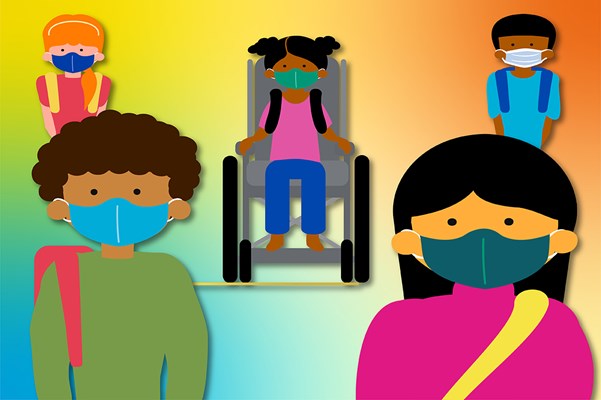News release: Updated COVID-19 school operation guidance document released by SickKids-led group
Summary:
Experts stress that in-person school with strong application of the recommended enhanced infection prevention and control strategies and a robust testing strategy is the best option for children of all ages.
TORONTO – A multidisciplinary group of experts led by The Hospital for Sick Children (SickKids) has updated its guidance for school operation during the COVID-19 pandemic. The living document, COVID-19: Updated Guidance for School Operation During the Pandemic, published January 21, 2021, synthesizes the latest literature on children and COVID-19 for consideration by policymakers. This is the third iteration of the document.
The guidance document is a grassroots effort, compiled by leading experts in the fields of paediatrics, infectious diseases, infection prevention and control (IPAC), school health, psychiatry and mental health. The updated versions include contributions and endorsements from other Ontario hospitals (CHEO, Holland Bloorview Kids Rehabilitation Hospital, Kingston Health Sciences Centre, Children’s Hospital at London Health Sciences Centre, McMaster Children’s Hospital and Unity Health Toronto), adult infectious diseases physicians, epidemiologists, public health physicians, and a volunteer advisory group of teachers and parents.
Now knowing the significant negative impact that the initial prolonged school closure had on children and youth, the co-authors emphasize in-person school with strong application of the recommended enhanced IPAC strategies and a robust testing strategy is the best option for children of all ages. However, they stress keeping schools open safely will be facilitated by lowering rates of community transmission.
The major updates in this version of the document include:
- Testing recommendations for symptomatic and exposed students and additional considerations for asymptomatic testing.
- More robust physical distancing and non-medical mask use, particularly for high school and middle school students in the highest risk regions.
- Emphasis on cohorting rather than strict enforcement of physical distancing for younger students because of the centrality of play and socialization to their development and learning.
- Updated section on mental health awareness and support for all children and youth.
The co-authors state that thorough testing and contact tracing will be important to continually gather information on transmission in schools and should be used to evaluate and adjust health and safety measures. They also argue that prioritizing enhanced IPAC measures and supports to the highest risk regions is likely a more effective approach to ensuring schools reopen and stay open in an equitable fashion.
“When considering public health measures aimed at curbing community transmission of COVID-19, it is our strong opinion that schools should be the last doors to close and the first to open in society,” says Dr. Ronald Cohn, President and CEO, SickKids, and co-author of the document. “The current school closures need to be as time-limited as possible. It is therefore imperative that bundled measures of infection prevention and control and a robust testing strategy are in place.” The authors state that additional delays will inevitably further exacerbate the harms to children and the inequities caused by school closures.
Quick facts
- In Canada, of 708,619 COVID-19 cases reported as of January 17, 2021, 109,342 (16.1 per cent) were in individuals aged 19 years and under.
- There continues to be strong evidence that most children and youth who become infected with SARS-CoV-2 are either asymptomatic or have only mild symptoms. Severe disease requiring hospitalization is uncommon for children.
- Community-based public health measures, including school closures, are having significant adverse health consequences for children and youth, including but not limited to a substantial rise in depression, anxiety and other mental health concerns, delayed diagnosis and care for non-COVID-19 related medical conditions and decreased routine childhood vaccination coverage.


